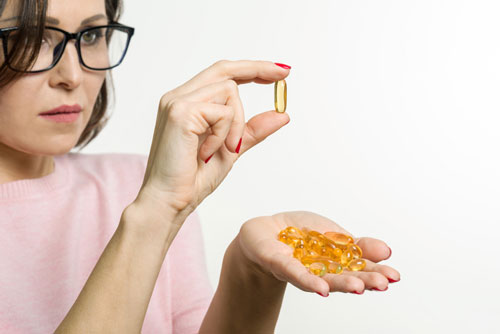For years, Big Pharma ignored fish oil.
And when they weren’t ignoring it, they were disparaging it by saying that statin drugs and other prescription meds were more effective in preventing heart disease.
But then study after study began showing fish oil’s effectiveness.
Large, high-quality trials showed that fish oil cut the risk of heart attack with few, if any, side effects. Earlier this month, another large study found that fish oil is beneficial for heart failure patients as well.[1]
With scientific backing like this, it’s not surprising that fish oil supplements have become wildly popular. At least 10% of Americans now take them.[2]
Big Pharma has now abandoned its criticism of fish oil, figuring if you can’t beat ’em, join ’em. They started making their own prescription versions. Two are now available. They are called Lovasa and Vascepa.
The maker of Vascepa recently asked the FDA to allow it to be used not only in patients with existing heart disease, but as a preventive measure as well.
Don’t fall for their scam.[3]
You can get the same benefits from a high-quality over-the-counter fish oil supplement as you can from Vascepa. But you’ll pay far less.
Take the Right Kind of Fish Oil
You don’t need a prescription omega-3 fish oil to obtain heart-protective benefits. But you should make sure you get the right kind of over-the-counter fish oil supplements.
Most fish oils are made with a cheap, fast manufacturing process that yields something called an ethyl ester (EE). This kind of fish oil is less bioavailable. Labels of EE fish oil often say the product is derived from “marine oil concentrate.”[4]
Instead, look for brands that contain the triglyceride form of fish oil. It should be noted on the label.
A high-quality fish oil will also be relatively free of any fishy tastes or smells. The oil should be nearly translucent and not cloudy.
You’re more likely to find quality fish oil at health food stores and online than at drug stores and supermarkets.
According to the European Food Safety Authority, omega-3 supplements can be safely consumed at doses up to 5,000 mg daily.[5]
But if you’re on a blood-thinning medication, check with your doctor before taking fish oil.
It’s settled science: Taking fish oil is one of the best things you can do for your heart. And you don’t have to buy it from Big Pharma.
Editor’s Note: If you’re concerned about heart disease, there’s something you should know: Research shows the standard mainstream medical treatments—stents and statin drugs—don’t prevent heart attacks. Discover what does. Get the Heart Smart Protocol. It’s a simple, science-backed plan that prevents and treats America’s number one killer naturally, without drugs or procedures. You’ll find it in our monthly journal, Independent Healing. Subscribe HERE.
Related Articles
Fish Oil Stops Alzheimer’s, Study Finds
One Healthy Oil Eases Arthritis Pain
Like this Article? Forward this article here or Share on Facebook.
[1]https://consumer.healthday.com/circulatory-system-information-7/heart-failure-news-753/fish-oil-is-good-medicine-for-heart-failure-752164.html
[2]https://well.blogs.nytimes.com/2015/03/30/fish-oil-claims-not-supported-by-research/
[3]https://www.bloomberg.com/news/articles/2019-11-14/amarin-wins-fda-panel-nod-to-expand-heart-drug-vascepa-s-label-k2z8bd53
[4]https://www.mygenefood.com/find-best-omega-3-fish-oil-supplements
[5]https://www.healthline.com/nutrition/fish-oil-dosage

